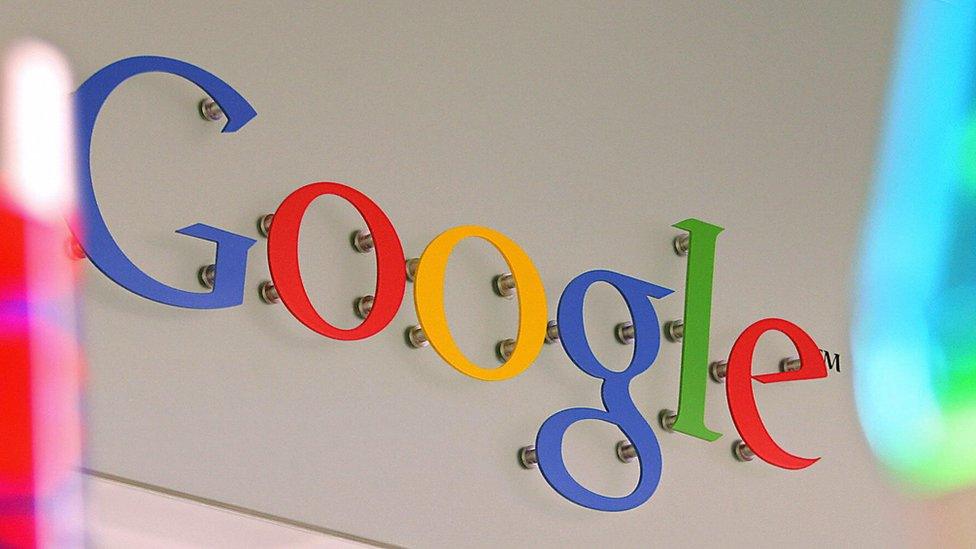Is Google feeling unloved?
- Published
- comments

There was a painful moment in this week's UK parliamentary hearing about Google's tax affairs when the company's European boss Matt Brittin was asked to reveal his pay.
He hesitated, and then said "I don't have the figure but I will happily provide it." Now this turned out to be the worst possible answer - the MP who had asked the question was able to point out that anyone who didn't even know the size of their own pay packet must live in a different world from most people.
A better answer might have been that, like any commercial business, Google was not required to disclose the salaries of executives other than those on the main board - which Mr Brittin is not - so the politician should not be so nosy.
The trouble is that Google has never wanted to be just any old business. It sees itself as having a higher mission - and it wants to be admired, even loved.
Back in 2004, in the offer document sent to potential shareholders when the search firm floated, the two founders said this: "Google is not a conventional company. We do not intend to become one." And they expanded on that by explaining that "don't be evil" would be the principle by which this unconventional company would be run.
The search engine giant is not alone amongst technology companies in this desire to paint itself as being on a higher mission than mere sordid money-making. Ever since Facebook's arrival on the stock market, it has talked far more about its desire to help people share and connect than any of that tedious stuff like growing profits and boosting shareholder value.
But of course once you become a public company, with a duty to update investors on your finances every three months, that mission thing becomes harder to sustain. Your offices may still be full of ping pong tables and free food but your tax planning department is occupying a whole floor.
Over in Washington DC your corporate lobbyists are hard at work, and they're wearing suits and ties not jeans and t-shirts. And your remuneration committee is looking at the competition and saying: "Our chief executive has transformed the business into the world's most valuable company, so we had better reward him with a healthy chunk of shares or he might go elsewhere." In other words, Google has in many ways become the conventional company that its founders were so sniffy about back in 2004.

And when it comes to paying taxes, just like Facebook and other technology giants, Google is no less adept at organising its affairs in the most efficient way than any other multinational. It's not its fault that there are all these clever wheezes to shift profits around the world to minimise tax liabilities - and to fail to take advantage of these loopholes would amount to negligence in the eyes of many shareholders.
So when politicians, journalists and the public ask rude questions about how Google can pay its chief executive more in one year than it hands over to the British tax authorities, the company should have a simple answer. You make the rules, we obey them - if you don't like it make some new rules, otherwise go away and leave us alone.
That is, in essence, what Google has been saying - except that something of that "don't be evil" ethos still seems to lurk at the back of the corporate mind. Its executives still want the company to be loved, so try in vain to assuage the anger about those tiny tax payments rather than shrug their shoulders and get on with the job.
The strange thing is that many of the millions who use the services of Google, Facebook and other tech giants seem to have bought into the illusion that they are charitable organisations rather than businesses.
When I wrote this week about Twitter's apparently doomed quest to attract new users without alienating the old ones, an angry Tweeter responded in apparent shock: "It's all about the money", adding the hashtag #RIPTwitter.
Whatever dreams they start with - and hold on to - it is all about the money for technology companies. At least, that is, if they want to survive and grow into the kind of businesses that can pay their bosses $200m a year.